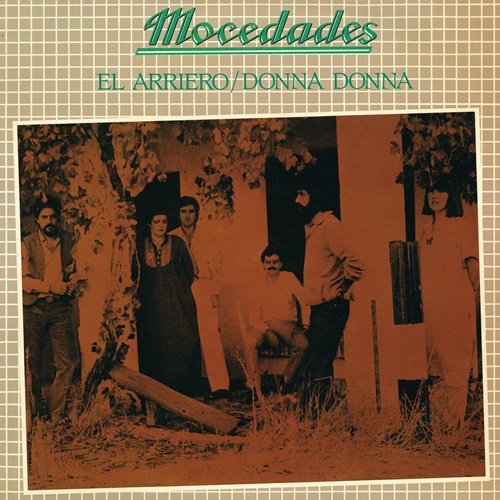Spanish vocal group Mocedades was formed in 1967 by four young students from Bilbao. Inspired by folk music and songs by the Beatles, they started a band called Voces y Guitarras, later named Mocedades. When producer Juan Carlos Calderon listened to their first demo, he was instantly convinced about the chance they would have to become a major act in the local scene. Mocedades started making history in 1973 when the band came in second place at Eurovisión's Festival with its song "Eres Tú," followed soon after by a second smash hit called "Tómame o Déjame." In 1980, Mocedades signed up to CBS and started working with producer Oscar Gómez. While the group started going through a period of important changes, its remaining members were able to start all over again, without giving any chance to a final breakup. Songs such as "Amor de Hombre" and "Maitechu Mia," recorded along with Plácido Domingo, climbed on popular music charts. Swapping out different singers throughout its career didn't change Mocedades' sound, which retained a solid prestige strengthened by followers all around the world.
Personnel changes occurred with startling regularity. First, lead singer Amaya Uranga left the group in 1984 to pursue a solo career; she was replaced by Ana Bejerano, who recorded three albums with Mocedades for CBS: La Vuelta al Mundo de Willy Fog, Colores, and Sobreviviremos. By the time of the latter set, both José Ipiña and Carlos Zubiaga had left, with Iñaki Uranga joining the ranks. But this lineup too was short-lived. By the time 1992's Intímamente was released Bejerano, Iñaki, and Roberto Uranga had left, leaving Izaskun Uranga and Javier Garay the only original members. They re-formed by adding Inés Rangil, José García, and Iñigo Zubizarreta, establishing Izaskun as lead singer while reverting in style to the music the group played during their early years. Suave Luz was issued in 1995 with this lineup, but by the following year, most of the new members had left, replaced by Idoia Arteaga, Jose Antonio Las Heras, Arsenio Gutierrez, and Fernando Gonzalez. This new team worked with producer Juan Carlos Calderon to record Mocedades Canta a Walt Disney -- reworked versions of Disney songs in Spanish -- for the American Walt Disney Records. The album was a great success and created enough of a buzz for the band to appear on television again. In 1999, Izaskun was the victim of a serious car accident; her injuries resulted in two years bed rest, bringing a halt to the group's activity. Due to the lack of work, Idoia, Arsenio, and González left Mocedades, while José Antonio and Garay waited for Izaskun's full recovery.
Mocedades returned to live performances in 2001 with new members Luis Hornedo and Iratxe Martinez. Without a record deal, they issued their own music and videos over the internet. Misfortune continued to haunt the band. In 2005, three members from different eras --Rafael Blanco, Roberto Uranga, and José Antonio Las Heras (the latter an active member) -- all passed away. Las Heras was replaced by a returning González. Iratxe left not only the group, but the music business entirely. Rosa Rodríguez stepped in to take her place. The band recorded Mocedades Canta a Juan Luis Guerra, comprised entirely of the Dominican singer/songwriter's material. It was the only Mocedades not simultaneously released in Spain. It was successful enough to warrant not only a national tour, but a U.S. one, as well. In 2012, Mocedades issued two new songs to various internet stores, but a subsequent full length was put on hold when Rodríguez and González left the band at the end the year. They were replaced in 2013 with Begoña Costa and Aitor Melgosa, who toured with Mocedades as part of its 45th anniversary jaunt through Mexico.
The following year, Izaskun Uranga, the only remaining member from the group's original incarnation as Las Hermanas Uranga, also left the band. Since she retained legal rights to the name, she formed her own version of Mocedades with former members Rosa Rodríguez, González, and Arsenio Gutierrez and new member José María Santa María. Garay's Mocedades also continued touring and recording, issuing the album Por Amor a Mexico for Fonovisia in early 2018. There are still two active groups using the Mocedades name.




